KHS President and CEO Receives Letter of Gratitude from the Ministry of Labor and Social Protection in Moldova
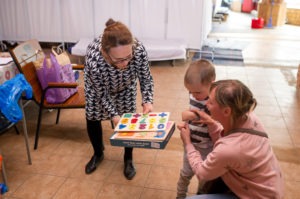 Keystone Human Services is pleased to announce that Charles Hooker, President and CEO of Keystone Human Services, has received a letter of gratitude from the Ministry of Labor and Social Protection in the Republic of Moldova for his leadership role in promoting and supporting the social inclusion of people with disability in Moldova.
Keystone Human Services is pleased to announce that Charles Hooker, President and CEO of Keystone Human Services, has received a letter of gratitude from the Ministry of Labor and Social Protection in the Republic of Moldova for his leadership role in promoting and supporting the social inclusion of people with disability in Moldova.
“I’m honored to receive this commendation from the Ministry of Labor and Social Protection,” said Charles. “It’s really a reflection of what Keystone Human Services and local KHS leadership in Keystone Moldova have accomplished over the past two decades. Together with the Ministry and the government of Moldova, we’re working to make sure people with disability are included in everyday life and have opportunities to fully exercise their rights.”
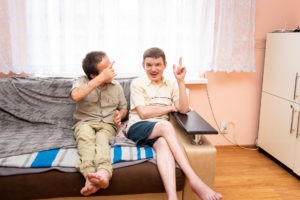 KHS’s involvement with Moldova dates back to 2000, the first time Charles visited the country. KHS began an international internship program, and the inaugural participants hailed from the College of Theology and Education’s Social Assistant Program in Chișinău. One of those participants was Liliana Malancea, who developed the idea for Keystone Moldova’s Unitate Community Center.
KHS’s involvement with Moldova dates back to 2000, the first time Charles visited the country. KHS began an international internship program, and the inaugural participants hailed from the College of Theology and Education’s Social Assistant Program in Chișinău. One of those participants was Liliana Malancea, who developed the idea for Keystone Moldova’s Unitate Community Center.
Based loosely on the Head Start program in the United States, Liliana developed a program to support the children and families most in need within her village, implemented with KHS’s support in 2003. Located in Tudora near the border with Ukraine, Unitate grew into a place where children could access social and educational support, psychological counseling, art and vocational activities, hygiene services, and meals. Children attending the center did better in school, became more sociable, and increased their self-esteem, and continue to do so to this day.
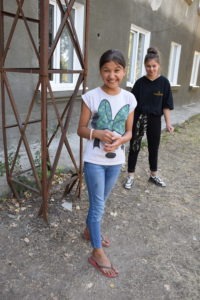 Soon after, Keystone Moldova became a registered NGO in Moldova. Backed by KHS’s 50 years of knowledge and experience, Keystone Moldova has become an expert in deinstitutionalization and community-based service systems, supporting people with disability to leave institutions and build lives within the community as neighbors, friends, employees, entrepreneurs, family members, and more.
Soon after, Keystone Moldova became a registered NGO in Moldova. Backed by KHS’s 50 years of knowledge and experience, Keystone Moldova has become an expert in deinstitutionalization and community-based service systems, supporting people with disability to leave institutions and build lives within the community as neighbors, friends, employees, entrepreneurs, family members, and more.
“I have the right to live in the community,” said Marin Andronache. “I lived in institutions from the time I was six until I was eighteen. In 2014, I left the institution, and then lived for three years in Supported Living Services. After that, I moved into my own home. I got married and I have a daughter. I also have a job. I like living in the community where I can make my own choices much better than in the institution.”
This work is rights-based, and when the COVID-19 pandemic spread across the world, Keystone Moldova, led by Dr. Ludmila Malcoci, worked to ensure the rights of people with disability were included in related policies and people themselves not only understood their rights but had access to critical protective equipment.
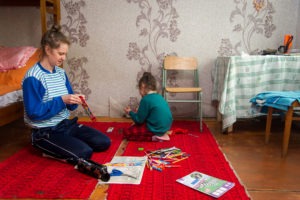 Since February 24, 2022 when the war in Ukraine began, Keystone Moldova has used its expertise not only to address the immediate needs of refugees at the border but to map the needs of refugees with disability and ensure that refugees with disability are included in emergency-related policies. In fact, Keystone Moldova and Ludmila are leading the United Nations High Commission for Refugees (UNHCR) Disability Task Force, and Keystone Moldova is providing assistive equipment, special nutrition, urgent need medications, and other critical items as winter sets in, supporting not only refugees, but also local host communities who have opened their homes.
Since February 24, 2022 when the war in Ukraine began, Keystone Moldova has used its expertise not only to address the immediate needs of refugees at the border but to map the needs of refugees with disability and ensure that refugees with disability are included in emergency-related policies. In fact, Keystone Moldova and Ludmila are leading the United Nations High Commission for Refugees (UNHCR) Disability Task Force, and Keystone Moldova is providing assistive equipment, special nutrition, urgent need medications, and other critical items as winter sets in, supporting not only refugees, but also local host communities who have opened their homes.
In addition, programs like the social canteens (food banks) and social laundry services support both people with disability and the entire community, including people from Ukraine.
“Over the years, we’ve built wonderful partnerships with donors and organizations that have really believed in the work Keystone is doing in Moldova,” said Charles. “We’ve shared a vision of what the world could be like if all people are included and valued.”
Keystone Moldova has worked to make that vision real, assisting public authorities to develop inclusive legal frameworks and innovative community-based services in line with the Convention on the Rights of Persons with Disabilities. Local leadership has been central to the sustainability of this work as Keystone Moldova built local capacities to help people with disability leave institutions and build lives in the community.
“We have a strong belief in the people of Moldova, this small country with a big heart,” said Charles. “We made a commitment twenty years ago to support Moldovans with disability. We’ve remained true to that commitment and we’re continually looking for new ways we can be a resource for inclusive practices.”
Read the text of the letter of gratitude below:
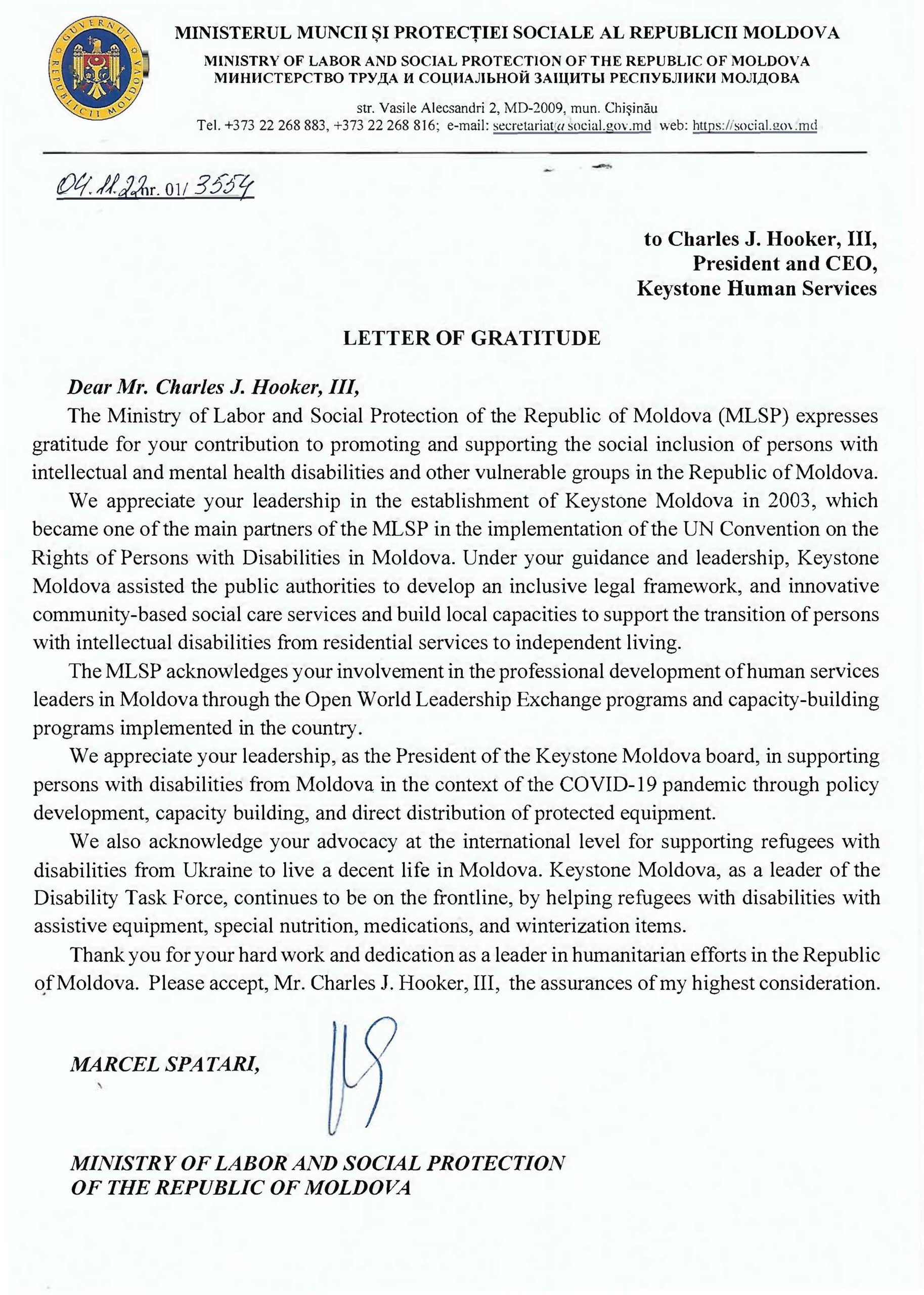
View as PDF


 Keystone Human Services is pleased to announce that Charles Hooker, President and CEO of Keystone Human Services, has received a letter of gratitude from the Ministry of Labor and Social Protection in the Republic of Moldova for his leadership role in promoting and supporting the social inclusion of people with disability in Moldova.
Keystone Human Services is pleased to announce that Charles Hooker, President and CEO of Keystone Human Services, has received a letter of gratitude from the Ministry of Labor and Social Protection in the Republic of Moldova for his leadership role in promoting and supporting the social inclusion of people with disability in Moldova. KHS’s involvement with Moldova dates back to 2000, the first time Charles visited the country. KHS began an international internship program, and the inaugural participants hailed from the College of Theology and Education’s Social Assistant Program in Chișinău. One of those participants was Liliana Malancea, who developed the idea for Keystone Moldova’s Unitate Community Center.
KHS’s involvement with Moldova dates back to 2000, the first time Charles visited the country. KHS began an international internship program, and the inaugural participants hailed from the College of Theology and Education’s Social Assistant Program in Chișinău. One of those participants was Liliana Malancea, who developed the idea for Keystone Moldova’s Unitate Community Center. Soon after, Keystone Moldova became a registered NGO in Moldova. Backed by KHS’s 50 years of knowledge and experience, Keystone Moldova has become an expert in deinstitutionalization and community-based service systems, supporting people with disability to leave institutions and build lives within the community as neighbors, friends, employees, entrepreneurs, family members, and more.
Soon after, Keystone Moldova became a registered NGO in Moldova. Backed by KHS’s 50 years of knowledge and experience, Keystone Moldova has become an expert in deinstitutionalization and community-based service systems, supporting people with disability to leave institutions and build lives within the community as neighbors, friends, employees, entrepreneurs, family members, and more. Since February 24, 2022 when the war in Ukraine began, Keystone Moldova has used its expertise not only to address the immediate needs of refugees at the border but to map the needs of refugees with disability and ensure that refugees with disability are included in emergency-related policies. In fact, Keystone Moldova and Ludmila are leading the United Nations High Commission for Refugees (UNHCR) Disability Task Force, and Keystone Moldova is providing assistive equipment, special nutrition, urgent need medications, and other critical items as winter sets in, supporting not only refugees, but also local host communities who have opened their homes.
Since February 24, 2022 when the war in Ukraine began, Keystone Moldova has used its expertise not only to address the immediate needs of refugees at the border but to map the needs of refugees with disability and ensure that refugees with disability are included in emergency-related policies. In fact, Keystone Moldova and Ludmila are leading the United Nations High Commission for Refugees (UNHCR) Disability Task Force, and Keystone Moldova is providing assistive equipment, special nutrition, urgent need medications, and other critical items as winter sets in, supporting not only refugees, but also local host communities who have opened their homes.